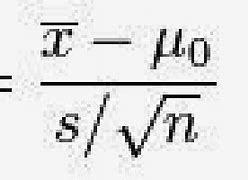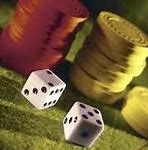
Tongkat ali vs. ashwagandha
We’ve spent a lot of time reviewing the literature investigating tongkat ali and a similar botanical ingredient called ashwagandha. Both are well-regarded for their abilities to increase testosterone and other aspects of male wellness, and both have research behind them indicating that they can ameliorate stress and anxiety.
So, which one should you take?
Well, the good news is that they don’t appear to be mutually exclusive of one another. You can take both together. It’s up to you whether to seek out a standalone ashwagandha supplement or try to find a single product that combines tongkat ali and ashwagandha.
Innerbody’s Testosterone Support actually combines them alongside nine other ingredients, and it does so using clinically relevant doses of both. It contains 400mg of tongkat ali and 600mg of a branded, standardized ashwagandha extract called KSM-66.
If you absolutely had to take one and not the other, we’d probably steer you toward ashwagandha at this time, as it boasts a little more research, especially into the anti-anxiety potential.13 14 That said, if you were more concerned with sexual health symptoms (ED, testosterone, libido), tongkat ali may be slightly superior. That’s even more true if you have any thyroid issues or take medication to manage your thyroid hormone levels, as ashwagandha may influence those.15
For most people consuming doses recommended on the bottle (typically 100-500mg), tongkat ali should be perfectly safe. Studies looking into these dose ranges only seem to report occasional adverse GI effects, which are extremely common among dietary supplements.
Larger doses of tongkat ali have been associated with more serious effects, including the potential to damage DNA in the GI tract. However, a close examination of the relevant study reveals several important caveats:3
In more responsible doses that have shown efficacy in studies, we often see few to no adverse effects reported. One study on Physta’s potential immunomodulation used a 200mg daily dose for four weeks and reported that “the frequency of reported [adverse events] did not statistically differ between the [tongkat ali] and [placebo] groups.”16 There’s even a study looking into tongkat ali-infused coffee, like the one available from Akarali, that indicates no adverse effects at doses below 14g. For reference, the serving size for Akarali’s coffee is 3.3g.17
Ultimately, this all paints a picture in which there are some theoretical risks associated with tongkat ali at very high doses, but those doses are far higher than the amount you’d need to experience the effects of a tongkat ali supplement.
Best single-ingredient tongkat ali supplement
Photo by Innerbody Research
Nootropics Depot manufactures a wide assortment of supplements, including a pair of tongkat ali options that are standardized extracts. These aren’t patented or branded extracts the way Akarali’s Physta is, but they are made by Nootropics Depot, and we haven’t found a comparably strong alternative to its 10% formulation.
The two available tongkat ali strengths from Nootropics Depot are 2% and 10% eurycomanone. Again, eurycomanone is thought to be one of the more important constituent parts of tongkat ali, responsible for the lion’s share of its positive effects. What’s less clear from the research we’ve reviewed is whether or not it can also be credited with any potential side effects. If it can, that 10% formulation may have a higher incidence of GI upset. But if it’s not the case, then a 10% concentration in a smaller overall dose could actually mitigate side effects.
Here’s how the two concentrations compare:
As you can see, Nootropics Depot delivers its more concentrated formula in a lower overall dose (100mg versus 200mg). That makes for smaller capsules and fewer of the ingredients that aren’t eurycomanone (90mg versus 196mg).
Innerbody pricing and returns
Innerbody provides a combination of bulk and subscription savings on its supplement, which works out like this:
Shipping is free on all Innerbody orders. The company doesn’t yet ship outside the U.S.
There’s a 30-day money-back guarantee on all purchases, which means you can try the product for up to a month and still get all of your money back if you aren’t satisfied. While many studies say tongkat ali takes up to 12 weeks to yield results, we’ve seen some studies state it bears fruit in as little as 28 days, so the 30-day guarantee is just long enough.
Photo by Innerbody Research
Whether you’re searching for a natural remedy to enhance sexual performance, raise testosterone levels, or reduce stress, you may have heard about tongkat ali, also known as longjack. There’s certainly some clinical evidence to support the idea that this botanical ingredient could make a difference.1
But you can get tongkat ali/longjack from an endless parade of manufacturers out there, some of whom claim to use special patented extracts that are more potent or consistent than others. We wanted to cut through all the noise, look at the science, try these supplements ourselves, and let you know which ones might be worth your time and effort.
If you’re in a hurry, here’s a quick look at what we found — what’s best for you really depends on your budget and goals:
How we evaluated tongkat ali supplements
To evaluate tongkat ali supplements, we considered four key criteria that could pit one offering against another and reveal which would perform the best. We chose these criteria based on our understanding of tongkat ali’s pharmacological potential and what we would anticipate to be the needs of the average consumer.
Let’s take a close look at each criterion to see what companies fared the best.
Winner: Nootropics Depot Tongkat Ali Extract 10% Eurycomanone
Tongkat ali (scientific name: Eurycoma longifolia) houses an abundance of bioactive compounds, from quassinoids and alkaloids to terpenes and steroids.1 Among these, quassinoids make up the majority, and one quassinoid in particular — eurycomanone — has been highlighted as a likely driver of tongkat ali’s positive effects.2
A standardized tongkat ali extract will typically contain between 0.8% and 1.5% eurycomanone. This is true of Physta, one of the more well-regarded and widely tested tongkat ali extracts on the market. But Nootropics Depot manipulates its standardization process further, concentrating the eurycomanone content all the way up to 10%.
The result is a product with a smaller overall dose (100mg compared to the typical 200mg Physta dose) that still delivers more eurycomanone.
Winner: Akarali Physta
From a safety perspective, standardization was a must-have in our eyes, as it ensures you’re getting the same amount of tongkat ali’s active components with each dose. We also didn’t want to put too large a dose in the winner’s circle here, as there’s evidence of potential short-term toxicity at high doses.
Specifically, the European Food Safety Authority identified the potential for tongkat ali to induce DNA damage in the gastrointestinal (GI) system.3 The possible severity of that damage and its consequences were undetermined in the report, but it’s worth noting that the damage was only seen in rats consuming a human equivalent of more than 22g of tongkat ali extract. To put it in perspective, you’d have to consume nearly four bottles of 200mg Physta capsules to reach that dose.
Physta also has the advantage of being subjected to multiple human studies in the past 20 years.4 The studies we’ve reviewed showed one incidence of adverse effects that differed from those seen in a placebo group. We still consider the alternative from Nootropics Depot to be safe, especially since its higher concentration is delivered in an overall smaller tongkat ali dose, but the abundance of data on Physta and its well-known risk profile makes it the obvious choice for safety.
Winner: Bulk Supplements Longjack Root Capsules
When we consider a supplement's potential cost, we consider more than just sticker price, with things like shipping costs, money-back guarantees, and more weighing in our decision. Bulk Supplements, whose tongkat ali already boasted the best sticker price, turned out to be the best pick for cost in general.
Here’s a quick cost comparison among our top tongkat ali supplements:
As you can see, you can get your hands on Bulk Supplements’ tongkat ali for less money up front than any other option, and its cost per gram of tongkat ali is lower — by far — than its competitors. The big caveat is that it’s not a standardized extract, so the exact amount of eurycomanone, saponins, and other constituent parts is both unknowable and likely to vary from one dose to the next. Your next-best budget-conscious option, if you want standardization, is Nootropics Depot’s less potent offering, standardized to 2% eurycomanone
One particularly amazing thing to note is that Innerbody’s Testosterone Support actually provides the same amount of tongkat ali per month as Akarali, but it does so both at a lower price and alongside ten other ingredients designed to boost testosterone levels and impart similar effects as tongkat ali. However, Innerbody’s tongkat ali is not a standardized extract.
Winner: Akarali Physta
Several variables can influence our convenience criterion, from the quality of a company’s site design to its customer service. The sites in question here are all similar enough, as is the customer service. And Bulk Supplements and Innerbody are the only companies that will accept returns on opened products, each for 30 days.
So, instead of focusing on these parameters, we looked at the convenience behind actually taking the tongkat ali in these supplements. Innerbody only offers its supplement as a capsule, Nootropics Depot offers a choice between capsules and tablets for its 10% eurycomanone extract, and Bulk Supplements offers tongkat ali as a capsule or a loose powder.
But Akarali delivers its Physta in several unusual ways, all of which make it the most convenient option for anyone interested in consuming their tongkat ali in a novel form. As with Bulk Supplements, you can choose between capsules and powder, but you can also get Akarali Physta as part of a fizzy energy drink or as part of an instant coffee. Our testers tried the coffee for themselves, and they were pleasantly surprised by the sweetness that the tongkat ali seemed to impart on an otherwise bitter (but not unpleasantly bitter) instant coffee.
Tongkat ali — also known as longjack or Malaysian ginseng — is a Southeast Asian plant traditionally used for its antimalarial and aphrodisiac properties.1 It’s a tall plant, resembling a palm tree but with shorter, more abundant leaves along longer branches.
When we talk about tongkat ali here, we’re discussing it as a supplement, not as the plant Eurycoma longifolia. And as a supplement, tongkat ali may offer many of the benefits for which it has been used in traditional medicine for centuries.
You’ll most often see tongkat ali sold in capsule form, with each capsule containing a powdered extract made from the plant’s roots, leaves, or both (roots are most common). Occasionally, you’ll find powdered extract available on its own (no capsules) or pressed into tablets. Some companies even make it into energy drinks or instant coffees.
Who is tongkat ali for?
Owing to all of its potential applications, tongkat ali may be suitable for a wide variety of consumers. Perhaps most notably, it makes sense as a supplemental approach to treating various sexual disorders in men, including low testosterone and libido, fertility issues, and poor erectile performance.
It may also be a helpful component of a larger anti-anxiety effort, combined with either other botanicals and supplements or things like talk therapy or meditation.
What are tongkat ali’s benefits?
Tongkat ali has a fairly long list of potential benefits when you consider its uses in traditional medicine. That list gets a lot shorter when you confine your examination to the available scientific research. Still, there are apparent and noteworthy benefits of tongkat ali delivered at commercially available doses that are worth exploring. These can include:1
Most of these effects have been examined in both human and animal studies, and some researchers have even narrowed down the specific mechanisms of action behind them.
As we discussed earlier, tongkat ali comprises numerous bioactive compounds that may be responsible for its benefits, but one of its quassinoids — eurycomanone — seems to get the most attention in the research we’ve reviewed.2 That’s not to say that the plant’s steroids, glycosaponins, and other constituent parts aren’t important, only that eurycomanone is the compound for which tongkat ali manufacturers will standardize their extracts, so we take its abundance in a given supplement very seriously.
Let’s take a closer look at tongkat ali’s potential benefits to see what the research says:
One of the most common reasons men seek out tongkat ali is to increase their testosterone levels. It’s also a big part of the supplement’s marketing from various brands, and the science backs it up. A study in men with late-onset hypogonadism found significant improvements in Aging Males’ Symptom (AMS) scores after one month of taking 200mg of tongkat ali per day.5 Another study went so far as to suggest tongkat ali as a substitute for testosterone replacement therapy (TRT).6 And a third study saw increases in total testosterone, free testosterone, and muscular force among male participants aged 57-72 years.7
A systematic review from 2022 concluded that “although more research is required before its use in clinical practice, [tongkat ali] may represent a safe and promising therapeutic option, particularly in hypogonadal men.”8
Research in rats points to a reduction in aromatase activity in the presence of eurycomanone, which ultimately inhibits the conversion of testosterone to estrogen. High concentrations of eurycomanone have also exhibited phosphodiesterase (PDE)-inhibiting effects not unlike those caused by Viagra and Cialis (albeit to a much lesser extent).2
Tied to tongkat ali’s apparent testosterone-boosting potential is its role in male fertility. Numerous studies have looked at longjack’s ability to increase sperm counts in both rats and humans, often with positive effects. One 12-week study using 300mg of Physta saw significant improvements in Seminal Fluid Analysis, with increases in both semen volume and sperm motility.9 A similar study in rats used a human equivalent dose of about 115mg on subjects that either were or were not treated with estradiol to harm sperm production.10 Tongkat ali inhibited the effects of the high estradiol dose and dramatically increased sperm count and motility in rats that weren’t exposed to a high estradiol dose.
Just as testosterone and spermatogenesis may be interrelated effects of tongkat ali, there also appears to be an increase in sexual desire and erectile performance among study participants. Some of this could directly be attributed to increases in testosterone for men who experience libido or erectile issues related to hypogonadism. But other mechanisms of action may be at play, as well.
As we said, at least one study has observed PDE-inhibiting effects from tongkat ali in mice. PDE5 is the specific PDE enzyme group that drugs like Viagra and Cialis target to allow men with erectile dysfunction (ED) to achieve an erection.2 Another study we’ve mentioned, the one that saw increases in seminal volume and sperm motility, also saw improvements in self-reported libido and erectile performance measures.9
Less research exists into tongkat ali’s anxiolytic effects, but there are noteworthy studies in both animals and humans. Human participants in one study reported reductions in tension, anger, and confusion, which all correlated with reductions in salivary cortisol.30 However, there were some competing interests for two of that study’s four authors, which may have introduced bias.
An older study in rats from 1999 equated the effects of tongkat ali to those provided by the prescription anti-anxiety medication diazepam.31
These studies don’t begin to approach the quantity or quality of those looking into a similar botanical — ashwagandha, which we’ll explore below — but they do show promise.
Cytotoxicity typically refers to a substance's ability to kill cells, with researchers looking specifically for compounds that can target cancer cells. Numerous in vitro studies have shown cytotoxic effects from tongkat ali on cells associated with ovarian, liver, skin, and breast cancers, among others.1 But this research is in its infancy, and we don’t recommend tongkat ali as a cancer preventive or treatment.
Researchers have also looked into tongkat ali’s influence on inflammation and rheumatism, ulcers, and osteoporosis, as well as its potential as an antimicrobial agent.1 At this time, these efforts aren’t robust enough to recommend tongkat ali along these lines, but it may prove beneficial here in future research.
Is tongkat ali the same as ginseng?
Is tongkat ali the same as ginseng?
Tongkat ali is sometimes called Malaysian ginseng, but it’s not actually a part of the ginseng family. The respective effects of tongkat ali and ginseng, while purportedly similar in traditional medicine’s anecdotal reporting, are very different within the scientific literature.
Alternatives to tongkat ali
If you’re comparing tongkat ali with other botanical or even prescription medications for one issue or another, you’ve likely come across a lot of options. To better understand which one might be right for you, it would help to look at the potential benefits of tongkat ali that have the most scientific support and compare the relevant research to studies into alternatives deployed for similar purposes.
Improving testosterone levels with supplements is relatively achievable, and there are numerous individual ingredients you can try, as well as complexes of ingredients specifically marketed as testosterone boosters. Among those complexes, Innerbody’s Testosterone Support is outstanding, and it includes a generous dose of tongkat ali. Visit our thorough guide on testosterone-boosting supplements for more information.
Alternative single-ingredient supplements include ashwagandha, fenugreek, vitamin D, and zinc.
Suppose you're experiencing significant symptoms related to hypogonadism and have been tested to reveal clinically low testosterone. In that case, you may be better off reaching for a prescription intervention, like traditional TRT, or another medication that can boost testosterone, like clomiphene or enclomiphene.
Lots of things can affect a man’s erectile performance and libido, including low testosterone, so there may be some overlap in the remedies you seek here. But if you’re specifically concerned about ED, you might want to consider prescription interventions. The generic versions of drugs like Viagra and Cialis have been available at low prices for years, and they’re accessible through numerous online companies, eliminating the potential embarrassment of an in-person doctor’s visit to discuss your concern. And the active ingredients — sildenafil and tadalafil — are among the most widely researched medicines on Earth.
For men who are new to such medications, we recommend BlueChew, where you can get a free trial of certain plans and save $20 on others with the coupon code INNERBODY.
Supplemental approaches to fertility are often marketed toward men in the form of volume pills, which claim, first and foremost, to increase the volume of your ejaculate. Indeed, semen volume is a measure used to help understand a man’s potential fertility issues, and many of the drugs and herbal remedies that can improve your chances at conception will also increase semen volume.
But too many of these supplements offer ingredients that lack research or doses that are lower than what research indicates could be successful. In our thorough analysis of the market, we’ve found Bird & Be’s Powers for Males to be the most potent and most likely effective nonprescription approach to male fertility issues.
Combating stress and anxiety can get complicated fast. Triggers based on years-old experiences, current environmental factors, diet, exercise habits, and other factors can all play into your stress response. So approaching the problem with a supplement isn’t always the silver bullet people want it to be. That said, supplements can be part of a multi-pronged approach to control cortisol levels and help you feel more even.
Ashwagandha is the tongkat ali alternative that’s most similar in its potential efficacy, other possible applications, and placement on the market. We have a more extensive comparison of these two ingredients in a dedicated section above (“Tongkat ali vs. ashwagandha”), but here we’ll say that ashwagandha boasts a little more successful research into its stress-busting potential.
Does tongkat ali damage DNA?
Does tongkat ali damage DNA?
A very small amount of research looking into tongkat ali’s potential risk factors identified a possible effect on DNA in the GI tract. But that research established an oblique correlation, far from any evidence of causation.3 Much more research is needed to clarify the issue, but it’s worth noting that the doses used in that research far exceed typical doses used in nutritional supplements.
Will tongkat ali show up on a sports doping test?
Will tongkat ali show up on a sports doping test?
No. Tongkat ali doesn’t affect any of the parameters that would cause you to fail a sports doping test.8
Innerbody uses only high-quality sources, including peer-reviewed studies, to support the facts within our articles. Read our editorial process to learn more about how we fact-check and keep our content accurate, reliable, and trustworthy.
Rehman, S. U., Choe, K., & Yoo, H. H. (2016). Review on a traditional herbal medicine, Eurycoma longifolia Jack (Tongkat ali): Its traditional uses, chemistry, evidence-based pharmacology and toxicology. Molecules, 21(3), 331.
Low, B. S., Choi, S. B., Abdul Wahab, H., Das, P. K., & Chan, K. L. (2013). Eurycomanone, the major quassinoid in Eurycoma longifolia root extract increases spermatogenesis by inhibiting the activity of phosphodiesterase and aromatase in steroidogenesis. Journal of Ethnopharmacology, 149(1), 201-207.
Turck, D., Bohn, T., Castenmiller, J., Henauw, S. D., Maciuk, A., Mangelsdorf, I., McArdle, H. J., Naska, A., Pelaez, C., Pentieva, K., Siani, A., Thies, F., Tsabouri, S., Vinceti, M., Cubadda, F., Frenzel, T., Heinonen, M., Maradona, M. P., Marchelli, R., . . . Knutsen, H. K. (2021). Safety of Eurycoma longifolia (Tongkat Ali) root extract as a novel food pursuant to Regulation (EU) 2015/2283. EFSA Journal, 19(12).
Chinnappan, S. M., George, A., Pandey, P., Narke, G., & Choudhary, Y. K. (2021). Effect of Eurycoma longifolia standardised aqueous root extract–Physta® on testosterone levels and quality of life in ageing male subjects: A randomised, double-blind, placebo-controlled multicentre study. Food & Nutrition Research, 65.
Tambi, M. I., Imran, M. K., & Henkel, R. R. (2012). Standardised water-soluble extract of Eurycoma longifolia, Tongkat ali, as testosterone booster for managing men with late-onset hypogonadism?. Andrologia, 44 Suppl 1, 226-230.
George, A., & Henkel, R. (2014). Phytoandrogenic properties of Eurycoma longifolia as natural alternative to testosterone replacement therapy. Andrologia, 46(7), 708-721.
Henkel, R. R., Wang, R., Bassett, S. H., Chen, T., Liu, N., Zhu, Y., & Tambi, M. I. (2014). Tongkat ali as a potential herbal supplement for physically active male and female seniors — a pilot study. Phytotherapy Research : PTR, 28(4), 544-550.
Leisegang, K., Finelli, R., Sikka, S. C., & Panner Selvam, M. K. (2022). Eurycoma longifolia (Jack) improves serum total testosterone in men: A systematic review and meta-analysis of clinical trials. Medicina, 58(8).
Ismail, S. B., Zahiruddin Wan Mohammad, W. M., George, A., Nik Hussain, N. H., Musthapa Kamal, Z. M., & Liske, E. (2012). Randomized clinical trial on the use of PHYSTA freeze-dried water extract of Eurycoma longifolia for the improvement of quality of life and sexual well-being in men. Evidence-Based Complementary and Alternative Medicine: ECAM.
Wahab, N. A., Mokhtar, N. M., A Halim, N. H., & Das, S. (2010). The effect of Eurycoma longifolia Jack on spermatogenesis in estrogen-treated rats. Clinics, 65(1), 93-98.
Kumar, P., Kumar, N., Thakur, D. S., & Patidar, A. (2010). Male hypogonadism: Symptoms and treatment. Journal of Advanced Pharmaceutical Technology & Research, 1(3), 297-301.
Jothi, S., Parumasivam, T., & Mohtar, N. (2023). Eurycoma longifolia: An overview on the pharmacological properties for the treatment of common cancer. Journal of Public Health in Africa, 14(Suppl 1).
Lopresti, A. L., Drummond, P. D., & Smith, S. J. (2019). A Randomized, double-blind, placebo-controlled, crossover study examining the hormonal and vitality effects of ashwagandha (Withania somnifera) in aging, overweight males. American Journal of Men's Health, 13(2).
Lopresti, A. L., Smith, S. J., Malvi, H., & Kodgule, R. (2019). An investigation into the stress-relieving and pharmacological actions of an ashwagandha (Withania somnifera) extract: A randomized, double-blind, placebo-controlled study. Medicine, 98(37).
Kamal, H. I., Patel, K., Brdak, A., Heffernan, J., & Ahmad, N. (2022). Ashwagandha as a unique cause of thyrotoxicosis presenting with supraventricular tachycardia. Cureus, 14(3).
George, A., Suzuki, N., Abas, A. B., Mohri, K., Utsuyama, M., Hirokawa, K., & Takara, T. (2016). Immunomodulation in middle-aged humans via the ingestion of Physta® standardized root water extract of Eurycoma longifolia Jack — a randomized, double-blind, placebo-controlled, parallel study. Phytotherapy Research: PTR, 30(4), 627-635.
Ahmad, N., Teh, B. P., Halim, S. Z., Zolkifli, N. A., Ramli, N., & Muhammad, H. (2020). Eurycoma longifolia — infused coffee — an oral toxicity study. Nutrients, 12(10), 3125.
Chinnappan, S. M., George, A., Evans, M., & Anthony, J. (2020). Efficacy of Labisia pumila and Eurycoma longifolia standardised extracts on hot flushes, quality of life, hormone and lipid profile of peri-menopausal and menopausal women: A randomised, placebo-controlled study. Food & Nutrition Research, 64.
Chua, L. S., Lee, S. Y., Abdullah, N., & Sarmidi, M. R. (2012). Review on Labisia pumila (Kacip Fatimah): Bioactive phytochemicals and skin collagen synthesis promoting herb. Fitoterapia, 83(8), 1322-1335.
Guo, R., Wang, Q., Nair, R.P., Barnes, S.L., Smith, D.T., Dai, B., Robinson, T.J., Nair, S. (2018). Furosap, a novel fenugreek seed extract improves lean body mass and serum testosterone in a randomized, placebo-controlled, double-blind clinical investigation. Functional Foods in Health and Disease 2018; 8(11): 519-530.
Verma, N., Gupta, S. K., Tiwari, S., Mishra, A. K., Thakare, V., & Patil, S. (2023). Effect of ashwagandha root extract on serum testosterone and muscle recovery in strength training. International Journal of Medical and Pharmaceutical Research, 4(5), 371-381.
Gonzales, G. F., Córdova, A., Vega, K., Chung, A., Villena, A., Góñez, C., & Castillo, S. (2002). Effect of Lepidium meyenii (MACA) on sexual desire and its absent relationship with serum testosterone levels in adult healthy men. Andrologia, 34(6), 367-372.
Appling, D. R., & Chytil, F. (1981). Evidence of a role for retinoic acid (Vitamin A-acid) in the maintenance of testosterone production in male rats. Endocrinology, 108(6), 2120-2124.
Chin, K. Y., Ima-Nirwana, S., & Wan Ngah, W. Z. (2015). Vitamin D is significantly associated with total testosterone and sex hormone-binding globulin in Malaysian men. The Aging Male: The Official Journal of the International Society for the Study of the Aging Male, 18(3), 175-179.
Masterjohn, C. (2007). Vitamin D toxicity redefined: Vitamin K and the molecular mechanism. Medical Hypotheses, 68(5), 1026-1034.
Hunt, C. D., Johnson, P. E., Herbel, J., & Mullen, L. K. (1992). Effects of dietary zinc depletion on seminal volume and zinc loss, serum testosterone concentrations, and sperm morphology in young men. The American Journal of Clinical Nutrition, 56(1), 148-157.
Duncan A, Yacoubian C, Watson N, and Morrison, I. (2015). The risk of copper deficiency in patients prescribed zinc supplements. Journal of Clinical Pathology, 68, 723-725.
Oluboyo, A. O., Adijeh, R. U., Onyenekwe, C. C., Oluboyo, B. O., Mbaeri, T. C., Odiegwu, C. N., Chukwuma, G. O., & Onwuasoanya, U. F. (2012). Relationship between serum levels of testosterone, zinc and selenium in infertile males attending fertility clinic in Nnewi, south east Nigeria. African Journal of Medicine and Medical Sciences, 41 Suppl, 51-54.
Córdova Martínez, A. (2020). Iron and physical activity: Bioavailability enhancers, properties of black pepper (Bioperine®) and potential applications. Nutrients, 12(6), 1886.
Talbott, S. M., Talbott, J. A., George, A., & Pugh, M. (2013). Effect of tongkat ali on stress hormones and psychological mood state in moderately stressed subjects. Journal of the International Society of Sports Nutrition, 10, 28.
Ang, H. H., & Cheang, H. S. (1999). Studies on the anxiolytic activity of Eurycoma longifolia Jack roots in mice. Japanese Journal of Pharmacology, 79(4), 497-500.
Activate and hold the button to confirm that you’re human. Thank You!
When used as directed, Tongkat Ali is generally safe. However, it's always recommended to consult with a healthcare professional before starting any new supplement, especially if you have any pre-existing medical conditions or are taking medication.
When used as directed, Tongkat Ali is generally safe. However, it's always recommended to consult with a healthcare professional before starting any new supplement, especially if you have any pre-existing medical conditions or are taking medication.
When used as directed, Tongkat Ali is generally safe. However, it's always recommended to consult with a healthcare professional before starting any new supplement, especially if you have any pre-existing medical conditions or are taking medication.























